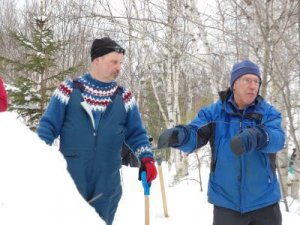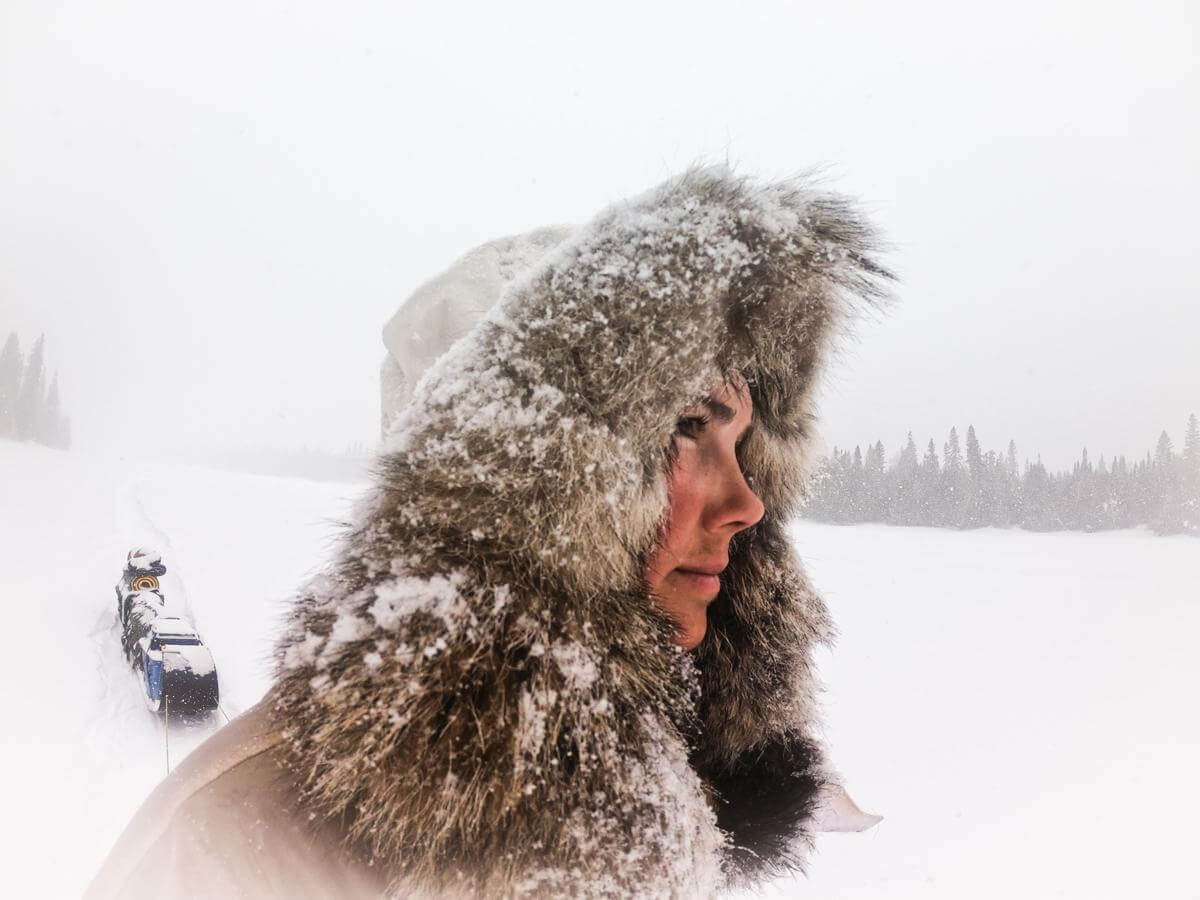
Trained first as a forester and then as a botanist with expertise in Arctic and alpine ecology,Courtin found himself on staff at Laurentian University in the fall of 1968. His mandate, over and above teaching courses in botany and environmental biology, was to continue his researchon how tundra plants are adapted to combat environmental stress in the High Arctic and to help lead the charge in Sudbury with respect to the restoration of a landscape that had been variously damaged by fire, logging and mining. Over the years his attention was gradually diverted from the study of stresses imposed by the natural environment to those imposed by human activity.
In 1980 he invited Peter Marchand, a colleague from Vermont with a very similar academic background to his, to give a departmental seminar on winter ecology. A third year undergraduate student fell under the spell of winter ecology and insisted that Courtin supervise a winter ecology thesis. And so, serendipitously, her love affair with winter also became his love affair with winter.
When Marchand left Vermont permanently a few years later he asked Courtin to take over the course. He did so, and for the next twenty-five years each January found him incentral Vermont teaching a winter ecology field course. A semester-long winter ecology course has been taught also at Laurentian University since 1991. Courtin has led a privileged life; his work has enabled him to travel widely in the northern hemisphere and a diverse academic background, that includes microclimatology and glacial geomorphology, has been pivotal to the types of research that he has chosen to pursue.
He has been surrounded by students whose passion, enthusiasm and resistance to cold were an inspiration.. He insists that it is they who have been the driving force behind whatever knowledge of winter he has gained over the years.

